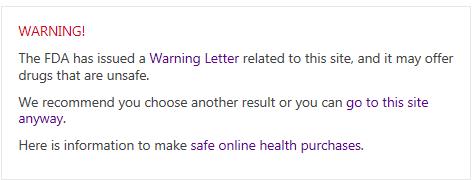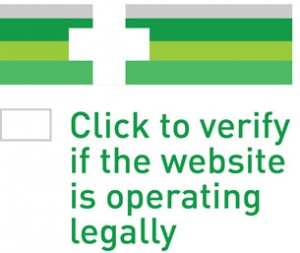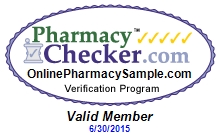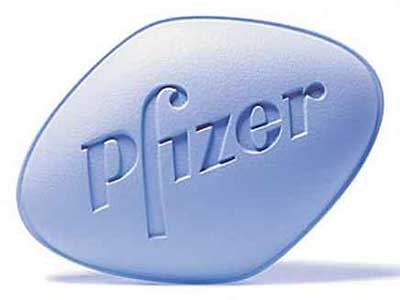by Gabriel Levitt, President, PharmacyChecker.com and Prescription Justice | Aug 27, 2015 | Drug Prices, Generic drugs, Online Pharmacies, Your Stories
[This is an unedited message from a consumer. You’ll note that, unfortunately, international online pharmacies raise their prices, too! If you have a story you’d like to tell, email us at yourstories@pharmacychecker.com.]
“I chose to order my Celebrex 200mg from a Canadian pharmacy when the price from Pfizer skyrocketed and the generic did the same. I assume you know that Pfizer selected a certain few US generic manufacturers to make it. They have kept the generic price almost as high as Pfizer’s. That is an unavoidable result of price control by Pfizer.
I have had good results from [Pharmacy Name Redacted]* although they have raised the price for 90 about $10 each time I have refilled. May switch to a different one from your list next time.”
-Ann K.
*PharmacyChecker does not wish to highlight specific international online pharmacies in our blog. You can view the current list of online pharmacies that sell branded and generic versions of Celebrex.
by Gabriel Levitt, President, PharmacyChecker.com and Prescription Justice | Aug 10, 2015 | FDA, Medication non-adherence, Online Pharmacies, Personal Drug Importation
Last week, Bing announced a new effort to use its search engine to warn consumers about threats from “fake” online pharmacies. The big problem is that at least some of the online pharmacies they list are not fake, but represent very real, licensed pharmacies, ones that require valid prescriptions and have been safely helping Americans afford medication for years. We know this because these pharmacies have been carefully evaluated, inspected, and monitored by us at PharmacyChecker.com, and meet high standards of pharmacy practice. See our standards: http://www.pharmacychecker.com/verification_program_guide_and_standards_1_3.pdf.
The online pharmacies targeted by Bing, which are approved in our program, are all located outside the U.S. Curtailing online access to lower cost and safe foreign medication using scare tactics is a strategy employed by the pharmaceutical industry. Indeed, Bing’s action seems to have a lot to do with stopping safe personal drug importation and will recklessly alarm Americans so they don’t buy more affordable medication from other countries.
Here is the warning which appears when a consumer’s Bing search results include links to one of these online pharmacies and they try to click on the link to that online pharmacy:

To choose the pharmacies it targets, Bing is relying on a list of online pharmacies which have received warning letters from the FDA. But, in at least several cases, these warning letters, which you can find on the FDA’s website, do not indicate a pharmacy to be fake, nor do they pertain to sales of counterfeit or adulterated medications, nor to any problems with the pharmacy meeting good standards of practice. Instead they relate to 1) sales of lawfully manufactured generic versions of drugs that are still on patent in the U.S., and 2) medications that are approved in Canada but not in the U.S. We will examine each of these letters fully over the next week, but our initial review indicates that these issues have been addressed by the online pharmacies in our Verification Program that received the letters.
The genesis of Bing’s action, which is most likely coordinated with the FDA, comes from the scare tactics about foreign medications conceived by pharmaceutical companies and their lobbying largesse. Why else would Bing decide to target only online pharmacies when many other pharmacies, pharmaceutical companies, medical device manufactures, and dietary supplement distributors have also received FDA warning letters for various infractions, yet Bing does not target them with its pop-up warning?
Bing’s actions would be great if the websites it is targeting were all fake or rogue online pharmacies, but they are not. When consumers see Bing’s warning, they will likely do one of three things:
- Keep searching for another online pharmacy that charges a price they can afford. They may find one of the tens of thousands of rogue pharmacy websites that don’t require a prescription (but are not included on FDA’s new list) and buy from that one. Then they are far more likely to end up with a counterfeit drug.
- Go to their local big chain pharmacy and pay hundreds if not thousands of dollars more for their prescribed medication. The Warning has a link to “safe online health purchases” but those take you to U.S. online pharmacies only, which are often the websites of the big chain pharmacies!
- Not take their prescription medication at all. Thirty-five million Americans each year already forgo prescribed medication due to cost.
These are horrible outcomes. Yes, warning Americans about rogue online pharmacies is good public policy. But leading Americans away from safe personal drug importation will just lead to fewer people getting medications they need, more Americans choosing between food and medicine, and larger profits for the big drug companies.
For those interested in a full policy analysis of FDA’s current campaign, please see our report called: “Online Pharmacies, Personal Drug Importation and Public Health.”
Tagged with: Big Pharma, Bing, FDA, international online pharmacies, PharmacyChecker Verification Program, rogue online pharmacies, search engines
by PharmacyChecker.com | Aug 5, 2015 | Drug Prices, Online Pharmacies, Personal Drug Importation, Prescription Discount Cards
Appearing on Fox and Friends this past Saturday morning, Tod Cooperman, MD, founder of PharmacyChecker.com, discussed our favorite topic – affording prescribed medication. The hosts wanted to know what is behind a recent class action lawsuit against CVS Health Corp in which the chain pharmacy is accused of overcharging consumers on generic drugs and how Americans can prevent getting bilked on price by pharmacies.
Lawsuit: CVS overcharged for generic drugs
CVS, like many chain pharmacies, has a prescription discount program, and the discounted prices can often be less than the co-pay required with some pharmacy benefit plans. However, CVS has apparently not been informing customers of the lower, discounted price. What has been happening is that hundreds of thousands of CVS customers have paid more money using their health insurance because the co-payments are higher than the discount program price.
Dr. Cooperman basically informed the public that this is probably a pretty common practice among U.S. chain pharmacies with similar programs. He said: “It’s really kind of ridiculous because you have people with insurance who…are being charged more than if you simply walked in and asked for the cash price or discounted price.” So what do you do? When you go to your local pharmacy, ask the pharmacist or pharmacy technician for the absolute lowest price you can pay. Call different pharmacies in your neighborhood, because generic drugs can sometimes cost five times more at one pharmacy than they do at another.
When medication is not affordable at your local pharmacy, international online pharmacies are an option for savings. Dr. Cooperman stated: “about five million Americans actually are now going outside the U.S. because they can’t afford their prescriptions.” Pharmacies in other countries sell safe and effective medications at much lower prices but rogue websites abound — so stick to verified international online pharmacies and compare their prices on www.pharmacychecker.com. Dr. Cooperman noted the technical illegality of personally importing meds but that the FDA doesn’t “go after consumers for doing it.”
Anna Kooiman, one of the hosts, mentioned that people lose their lives because they can’t afford medication. She added, “Listen, it might be illegal but some people do what they have to do to save their own lives.”
by Gabriel Levitt, President, PharmacyChecker.com and Prescription Justice | Jul 1, 2015 | Advocacy, Online Pharmacies, Online Pharmacy Verification Services, Skipping medications
 Today, online pharmacies that are based and selling medication internationally within the European Union (EU) are required to publish a new EU online pharmacy logo, as shown in the image to your left. We have updated our Verification Program requirements to reflect the EU’s new rules. The practice of international pharmacy is expressly legal within the EU, unlike between, say, the U.S. and Canada, although some EU member countries place national restrictions limiting the scope of cross-border sales. Only online pharmacies based in the member states of the EU are eligible for the new seal. Each seal will contain a special link that consumers can click to verify the seal’s authenticity.
Today, online pharmacies that are based and selling medication internationally within the European Union (EU) are required to publish a new EU online pharmacy logo, as shown in the image to your left. We have updated our Verification Program requirements to reflect the EU’s new rules. The practice of international pharmacy is expressly legal within the EU, unlike between, say, the U.S. and Canada, although some EU member countries place national restrictions limiting the scope of cross-border sales. Only online pharmacies based in the member states of the EU are eligible for the new seal. Each seal will contain a special link that consumers can click to verify the seal’s authenticity.
 Like the PharmacyChecker seal (right), the purpose of the EU logo is to help consumers shop safely for prescription drugs over the Internet and avoid dangerous pharmacy sites. To obtain a PharmacyChecker seal, an online pharmacy must meet many safety requirements, but its program seeks to maximize global access to safe and affordable medication to protect public health. The PharmacyChecker seal can also be authenticated by clicking it. If the seal profile is not hosted on www.pharmacychecker.com, then it’s a fake seal!
Like the PharmacyChecker seal (right), the purpose of the EU logo is to help consumers shop safely for prescription drugs over the Internet and avoid dangerous pharmacy sites. To obtain a PharmacyChecker seal, an online pharmacy must meet many safety requirements, but its program seeks to maximize global access to safe and affordable medication to protect public health. The PharmacyChecker seal can also be authenticated by clicking it. If the seal profile is not hosted on www.pharmacychecker.com, then it’s a fake seal!
It’s very important to understand that regulating online pharmacies in the EU is very different from U.S. regulations that can prevent Americans from obtaining safe, affordable prescribed medication. Unlike tens of millions in America, citizens of the EU are generally not faced with having to choose between food and medicine due to the high cost of prescription drugs. Why? The costs for prescription drugs are much lower in the EU than in the U.S., and their healthcare systems better ensure that everyone has access to affordable medication. Therefore, unlike Americans, EU citizens are not usually looking online for medications to treat asthma, depression, diabetes, heart disease, osteoporosis, and stroke because they can afford them at local pharmacies. They are much more likely to be bargain hunting for less essential medications, such as those that treat erectile dysfunction and hair loss, because those medications are often not covered by health insurance policies in the EU – similar in that respect to health coverage in the U.S.
Identifying online pharmacies that sell safe and effective medications and meet critical safety criteria protects consumers, and so does helping them find the lowest drug prices. That’s why we launched PharmacyChecker.com in 2003. However, I have a mixed mindset about the new EU online pharmacy logo. I believe that people in the EU, like those in America or anywhere, should be able to access safe and affordable medication globally if they can’t obtain it locally. It’s difficult to tell if the EU’s new logo and rules will impede access to medicines; although, as discussed, drug affordability is a much, much smaller problem in the EU than in the U.S. We’ll be closely following how the new regulations are working and what impact they have on consumers and their online access to safe and affordable medicine.
Tagged with: European Union, logo, PharmacyChecker Verification Program, PharmacyChecker.com Verification Seal, seal
by Gabriel Levitt, President, PharmacyChecker.com and Prescription Justice | Jun 19, 2015 | Online Pharmacies, Saving Money on Prescription Drugs

Is Viagra really safe to buy online? The truth.
Viagra, pharmaceutical giant Pfizer’s name for a drug called sildenafil citrate, is the most sought after medication on the Internet. You can save a lot of money buying Viagra online, but you can also risk getting a fake or tainted product that endangers your health. Here’s how to stay safe and save money. (more…)
Tagged with: buying online, generic, Pfizer, sildenafil citrate, Viagra
by Gabriel Levitt, President, PharmacyChecker.com and Prescription Justice | Jun 5, 2015 | Drug Prices, Generic drugs, Online Pharmacies
The media rage these days when it comes to prescription drug prices is three-fold: 1) generic drug price spikes of literally thousands of percent, 2) specialty medications that cost $1.000/pill, and 3) cancer treatment costs in the hundreds of thousands of dollars per year! We’re glad the media is loudly covering the public health crisis of high drug prices, but its focus of late seems to take the heat off of never ending brand name drug price increases and the pharmaceutical companies that charge those prices. We haven’t forgotten. For us the heat is on: including a loud reminder that these brand drugs are sold much more affordably outside the U.S., and can be found and safely purchased online.
To help us, I looked to the research of David Belk, MD. Dr. Belk, who is concerned with, and voraciously researches the insanity of healthcare costs, publishes a website called True Cost of Healthcare. His research shows that brand name drug prices increased by 13 times the rate of inflation over the past two and a half years. These are medications for which there is no available generic in the U.S. He looked at 335 drugs, their wholesale prices and tracked their increases from the October 2012 to the beginning of 2015. Only one drug, Norvir, actually came down in price. Dr. Belk writes: “All other brand name prescription drugs on my list went up a minimum of 9% and an average of just over 40% in price in only 2 1/2 years.”
While these brand drugs aren’t $1,000 per pill like Sovaldi, many Americans really can’t afford them. Below are two examples of brand name drugs that if purchased outside the U.S., would potentially save an American $4,000 a year and/or prevent that American from going without a prescribed, essential medicine for Diabetes or Asthma.
Januvia 100mg (siptagliptin), a drug that treats type-2 diabetes could cost you $1,149 for a three month supply at a local U.S. pharmacy. With a prescription discount coupon, you might get it for $963. If that’s too much, then brand name Januvia, marketed by MSD (a subsidiary of Merck), can be purchased online for $103.50 from an international online pharmacy– a percentage savings of 91% and a cost savings exceeding $1,000 over 3 months. Over a year, the cost savings is about $4,000.
Another example is Advair Diskus (fluticasone propionate/salmeterol), a popular asthma medication that is out of reach for many Americans due to cost. A three month supply of the 250/50mcg inhaler can run you $1,050 in a local U.S. pharmacy. With a discount card the price might be reduced to $874. At a verified international online pharmacy, the drug called Seretide Accuhaler, the name brand used by GlaxoSmithKline to market fluticasone propionate/salmeterol in several countries, is only $105: another three-month savings of $1,000 and annual savings of $4,000.
This summer at PharmacyChecker.com we’re going to keep the heat on the pharmaceutical industry with lots of examples of the crazy costs of normal brand name drugs in the U.S., and cooling things down for consumers with lots of savings you can find online.
Tagged with: Advair Diskus, Cancer medication, Dr. David Belk, generic drug prices, Januvia, Merck, Seretide Accuhaler, Sovaldi, speciality medications



 Today, online pharmacies that are based and selling medication internationally within the European Union (EU) are required to publish a new
Today, online pharmacies that are based and selling medication internationally within the European Union (EU) are required to publish a new 

